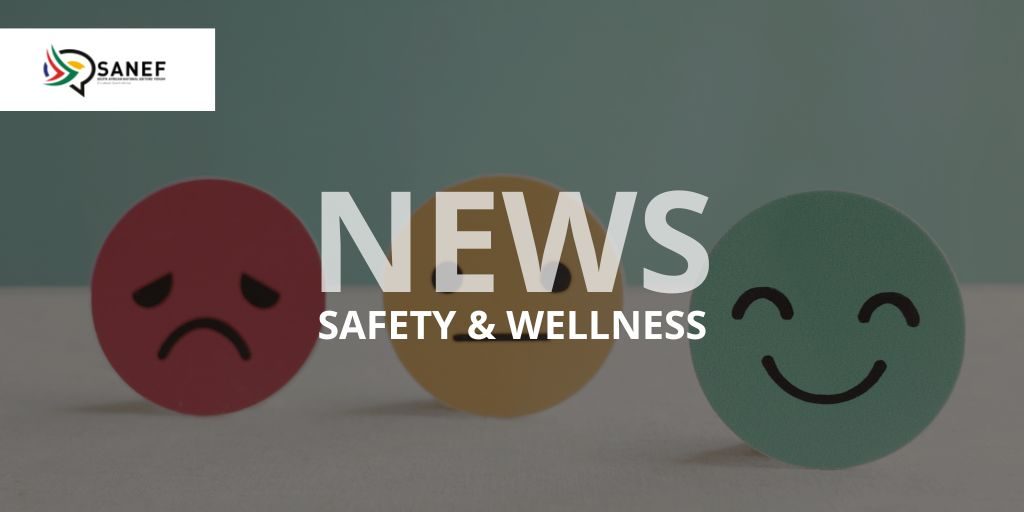Sanef and SADAG Partner to Help Journalists Deal With Covering Traumatic Stories

Thursday, 16 May 2024
The South African National Editors’ Forum (SANEF) has once again partnered with the South African Depression and Anxiety Group (SADAG) to help journalists deal with the many traumatic stories they cover.
The recent devastating building collapse in George has seen journalists on the front lines for days on end, tasked with reporting the harrowing details and stories of loss. While their dedication to informing the public is commendable, it is essential to recognise the toll that covering such traumatic events can take on journalists’ mental health.
Witnessing scenes of devastation, interviewing rescue workers amidst despair, and detailing tragic losses can deeply impact journalists. This can lead to symptoms of Trauma or a Trauma Response or can lead to Post-Traumatic Stress Disorder (PTSD).
SADAG and SANEF urge journalists experiencing distress or struggling with the emotional aftermath of covering traumatic events to seek help and support. We are committed to promoting mental health awareness and providing resources within the media industry. Remember, reaching out for assistance is not a sign of weakness but a courageous step towards healing and resilience. We remain committed to mental health awareness and support in the media industry.
We understand the importance of equipping journalists with tools to cope with these challenges and prioritise their well-being and provide key resources and support services to help them cope with the impact.
“We call on all journalists dealing with this – or any other deeply traumatic stories – to reach out to SADAG for help and support,” said Katy Katopodis. Chair of SANEF’s Journalism Wellness and Safety Committee.
Katopodis added “We also strongly encourage newsroom editors to offer all the necessary support to their teams and introduce regular newsroom debrief sessions.”
Recognizing Symptoms of Trauma:
It is crucial for journalists to be aware of the signs and symptoms of trauma or PTSD, including:
- Flashbacks or intrusive memories or visuals of traumatic events (these can also include sounds, smells or even visual memories or flashbacks)
- Difficulty sleeping or nightmares.
- Increased irritability, agitation, or anger
- Feelings of numbness or detachment
- Avoidance of reminders of the traumatic event
- Difficulty concentrating or making decisions.
Coping Strategies and Resources:
Here are eight practical tips for coping with trauma:
- Seek Support: Reach out to trusted friends, family members, or mental health professionals for emotional support and guidance. Talking about your feelings and experiences can help alleviate stress and promote healing.
- Practice Self-Care: Prioritize self-care activities such as exercise, meditation, journaling, or engaging in hobbies that bring you joy. Taking care of your physical and emotional well-being is essential for coping with trauma.
- Establish Routine: Establishing a daily routine can provide a sense of stability and predictability, helping you regain a sense of control amidst chaos. Stick to regular sleep patterns, mealtimes, and activities to promote stability and structure in your life.
- Limit Media Exposure: While staying informed is important and part of a journalist’s job, excessive exposure to media coverage of traumatic events can exacerbate feelings of distress and anxiety. Limit your consumption of news and social media to prevent overwhelm and reduce triggers in-between work shifts.
- Practice Relaxation Techniques: Incorporate relaxation techniques such as deep breathing exercises, progressive muscle relaxation, or guided imagery into your daily routine to reduce stress and promote relaxation.
- Engage in Positive Activities: Engage in activities that bring you joy and provide a distraction from negative thoughts and emotions. Spend time with loved ones, pursue hobbies, listen to music you enjoy, watch your favourite movie, or participate in activities that promote relaxation and enjoyment.
- Express Yourself: Find healthy outlets for expressing your thoughts and emotions, such as writing in a journal, creating art, or talking to a therapist. Expressing yourself creatively can help process emotions and release pent-up tension.
- Seek Professional Help: If you are struggling to cope with trauma on your own, do not hesitate to seek professional help from a therapist or counsellor. Professional support can provide guidance, validation, and coping strategies tailored to your individual needs.
Helpful Resources
To support journalists in coping with trauma, here are resources that can assist:
- Employee Assistance Program (EAP): Many media organizations provide free confidential EAP services to employees, offering counselling and support for mental health concerns. Journalists are encouraged to reach out to their organization’s EAP for assistance.
- South African National Editors’ Forum (SANEF): SANEF provides resources and support for journalists, including guidance on ethical reporting practices and advocacy for press freedom. Journalists can access SANEF’s support services for assistance and guidance.
- South African Depression and Anxiety Group (SADAG): SADAG offers free telephone counselling on its toll-free Trauma Helpline (0800 20 50 26) which is available 7 days a week and provides nationwide resources for individuals experiencing mental health issues, including trauma-related symptoms. Journalists can reach out to SADAG for confidential support, trauma debriefing and referrals to mental health professionals through a dedicated SMS 31985 support service (available 24 hours a day)
- If you are on a medical aid, from the most basic hospital plan to the top executive plan, you have access to Prescribed Minimum Benefits (PMBs) which provides you with hospital admission for psychotherapy/counselling for up to 3 days, or up to 12 outpatient psychotherapy/counselling sessions for acute stress disorder following a traumatic event. These Prescribed Minimum Benefits does not come out of your savings benefit, it is fully covered by your medical aid. Contact your medical aid directly and ask them how to access these PMB benefits, they will also guide you to psychologists within your network or benefit scheme.
“As journalists continue their vital work of reporting on crisis situations, we urge media organizations to prioritize the mental health of their staff and provide access to necessary support services. Normalising mental health support to help journalists cope with trauma is the first step to breaking the stigma and improving help seeking behaviour amongst press and media – whether they are an editor, journalist, camera man or sound engineer – there is help available,” says SADAG’s Operations Director, Cassey Chambers. By taking proactive steps to address trauma and promote self-care, we can ensure the well-being of journalists while upholding the principles of ethical reporting and public service.
ENDS.
For more information or to arrange interviews, please contact:
- SANEF – Dzudzie Netshisaulu 079 029 7656 or [email protected]
- Katy Katopodis 0828057022
- SADAG – Ofentse 076 787 2316 or [email protected]
- Cassey on 082 835 7650 or [email protected]
Note to Editors:
The South African National Editors’ Forum (SANEF) is a non-profit organisation whose members are editors, senior journalists, and journalism trainers from all areas of South African media. We are committed to championing South Africa’s hard-won freedom of expression and promoting quality, ethics, and diversity in the South African media. We promote excellence in journalism by fighting for media freedom, writing policy submissions, research, and education and training programmes. SANEF is not a union.




